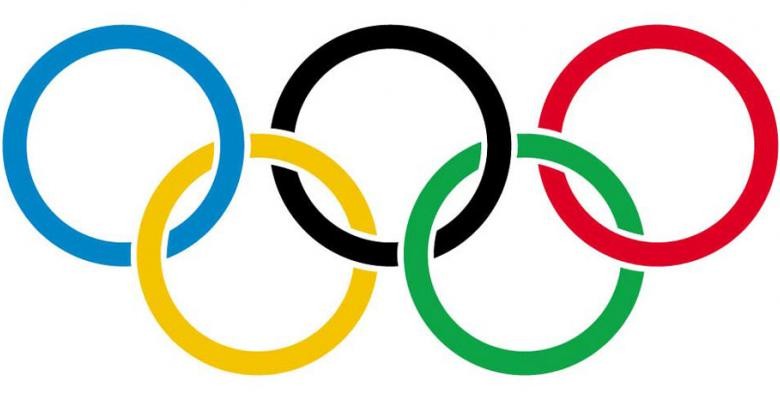Russia Experts Weigh in on Issues Facing Sochi Olympics, From Gay Rights to Security

The 2014 Olympics that open Feb. 7 in Sochi are a capstone of Vladimir Putin’s -nearly 14 years as president, a chance to show the world that Russia can host a spectacular international event.
But weeks before the opening ceremonies, Russia’s anti-gay policies and concerns about possible terrorist attacks are getting most of the attention. In the wake of suicide bombings in Volgograd that killed 34 and laws that discriminate against gays and lesbians, the U.S. State Department issued a travel alert for Americans planning to go to Russia. More recently, U.S. and Russian officials recently discussed using sophisticated American electronics equipment that can counter improvised explosive devices to help secure Sochi.
Russia experts at Columbia’s Harriman Institute for Russian, Eurasian and East European Studies are following these events closely. The Institute has sponsored three panel discussions related to the Sochi Olympics, one on Russian politics and two concerning the anti-gay policies of the Putin administration. A fourth, on cybersecurity and the Olympics, is scheduled for Feb. 10.
The Sochi Olympics are “a very important project for Russia on the international stage and for the Putin administration,” said Timothy M. Frye, director of the Harriman Institute and a scholar of Russian politics and economics. The games are the most expensive ever at more than $50 billion, surpassing the $40 billion spent on the 2008 Summer Games in Beijing and about 10 times the estimate that Russia submitted in its bid to the International Olympic Committee in 2007.
The panel discussions, moderated by Harriman Deputy Director for Development Kimberly Marten, the Ann Whitney Olin Professor of Political Science at Barnard, and co-sponsored by Barnard, brought in scholars from around the world, including Andrey Makarychev, professor of government and politics at the University of Tartu in Estonia, and Ray Taras, Fulbright Distinguished Chair in European Studies at the University of Warsaw in Poland.
Other participants included openly gay figure-skating champion Johnny Weir, who has competed in the Olympics and will be a commentator in Sochi for NBC, and Russian-American author Masha Gessen, who recently left Russia with her same-sex partner and their children.
Panelists denounced Russia’s anti-gay policies, which include a law prohibiting anything deemed to promote homosexual activity and a proposed law to remove children from same-sex parents. Asked in mid-January about Russia’s attitudes about gays, Putin said visitors could be at ease during the Olympics, but added gays should “just leave kids alone, please.”
Gessen, whose latest book is about the Russian feminist punk-rock band Pussy Riot, has called Putin “a thug” and said the laws “reflect his own mind-set … Enemies of Russia have to be foreigners and gays and lesbians are the quintessential foreigners.”
Weir, who was on a panel with his husband Victor Voronov, said the Olympics should be about sports, not politics, and he noted that athletes could be expelled from the games or risk losing their medals if they take any political action. But he added that his “presence itself will be a statement of opposition to the law.” Thomas Roberts, an NBC correspondent who will be covering the Olympics, also is openly gay.
In an interview after one of the panels, Marten said President Barack Obama (CC’83) sent a strong message by announcing that neither he nor Vice President Joe Biden will attend the games and naming a delegation that includes three openly gay athletes – tennis great Billie Jean King, two-time Olympic medalist in hockey Caitlin Cahow and 1988 figure-skating gold medalist Brian Boitano, who came out after learning he would be in the delegation. The French and German presidents are among several world leaders who also will not attend the games.
No Columbians will compete at Sochi, although Columbia has an Olympic medalist among its students – Sasha Cohen, who won the silver medal in figure skating in 2006, is a junior in the School of General Studies. “People go into the Olympics to compete, to represent their country and their sport,” Cohen said. “It’s a platform to excel in sports, there should be no discrimination.”
Security in Sochi will be tight, with designated areas for protests. Putin has promised there won’t be any arrests for violating the anti-gay laws during the Olympics, but “what happens afterwards is anybody’s guess,” Marten said, predicting stepped up enforcement of the laws once the international community is no longer focused on Russia.
She doesn’t expect incidents at Sochi but noted that Sochi is close to Chechnya and Dagestan, where there has been civil unrest, and Islamist rebel leader Doku Umarov told followers last July that they should disrupt the Olympics. In a video that surfaced just recently, two members of an Islamist militant group took credit for the Volgograd bombings and promised “a surprise” for Putin and tourists at the Olympics.
In an interview, Marten said Putin has to balance conflicting demands from two branches of Russia’s elite power structure—those who want Russia to be more economically integrated with the West and conservatives, including a resurgent Russian Orthodox Church, who are increasingly nationalistic. Anti-gay laws may be a way to appease conservatives and differentiate Russia from the West, she said. “It’s about balance, getting them all not to overthrow you.”